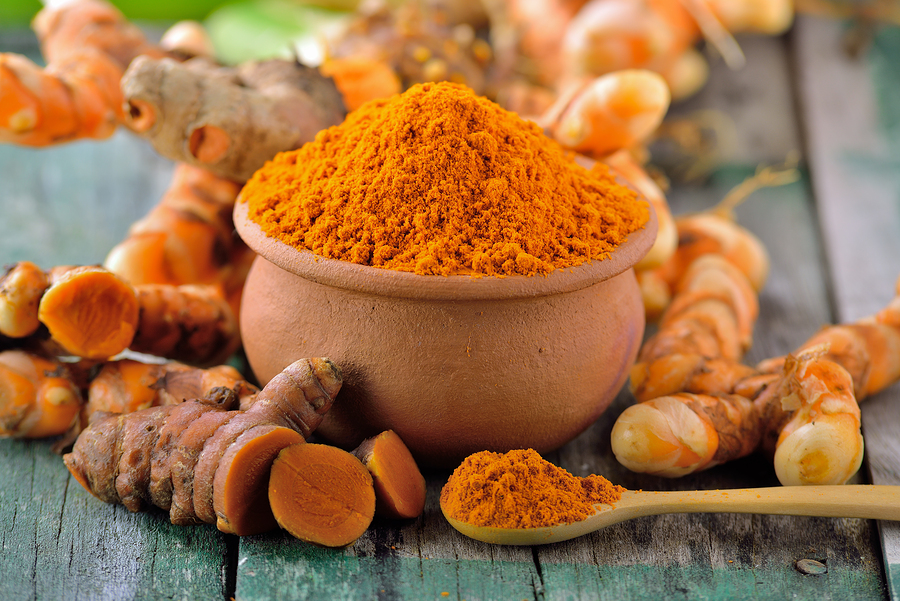- Make It Yourself Lavender Heart-Shaped Bath Bombs!
- 20 Things You Never Knew About “Down There”
- 12 Best Foods For Those Suffering From Arthritis Pain
- 12 Personal Hygiene Mistakes Almost Everyone Makes (Mom Never Told You About #4!)
- 15 Medicinal Plants And Herbs From The Cherokee People
- 12 Mind-Blowing Benefits Of Drinking Coconut Water During Pregnancy
- 12 Outstanding Winter Foods That Won’t Fatten You Up Like A Christmas Turkey
Treat Crohn’s Disease Naturally
The field of medicine is constantly evolving with all the experiments and researchers aimed at finding the best and safest treatments to fight different kinds of diseases. However, there are times when the most effective medicines can be naturally grown in your backyard. Take for example the Crohn’s disease, a type of an inflammatory disease which usually involves the colon and ileum. Crohn’s affects your digestive tract and can often be detected through symptoms such as abdominal pain, diarrhea, rectal bleeding, fever and weight loss. In order to help you treat such discomforting issue, here is the list of proven herbal treatments that you may opt to try. However, before taking in anything, remember to consult your physician first.
Continue to Page 2
1. Boswellia Serrata
This plant is popularly called the “Indian frankincense” and belongs to a resin-producing family that is famous for aromatic oils. It is one of the most valuable herbs in Ayurveda medicine because of its anti-inflammatory properties. In fact, it has been regarded as a valuable cure for bronchial asthma, arthritis, and other inflammatory disorders. It effectively treats Crohn’s disease with boswellic acids, which are found in its oleo gum resin. The acids work by suppressing inflammatory cytokines, inhibiting the triggering of nuclear factor kappa beta, and preventing the formation of reactive oxygen species. The boswellia serrata is a good alternative to steroids because unlike the latter, the former actively fights Crohn’s disease without any side effects. Due to its properties, it has been regarded as one of the safest herbal treatment to use.
Continue to Page 3
2. Turmeric
The spice turmeric, also known as Indian saffron or curcuma longa, has been used for thousands of years in traditional Chinese and Ayurvedic medicine in order to treat skin diseases, mood disorders, stress, and infection. This culinary wonder is also regarded as an effective treatment for Crohn’s disease thanks to its volatile oil fraction full of anti-inflammatory benefits. Curcumin, the main pharmacological agent of turmeric, which can be extracted from the rhizome of the herb, has an even stronger anti-inflammatory effect that is said to be comparable with corticosteroids and phenylbutazone. Like boswellia serrate mentioned above, turmeric does not have any side effects which makes it the more ideal treatment compared to other drugs. A word of caution, however. This herb is not recommended for children. Aside from anti-inflammatory effects, this herb has a lot of benefits under its name. For instance, it has been discovered that turmeric possesses antioxidant, anticancer, and cholesterol-lowering properties. It is no mystery, therefore, that aside from Crohn’s disease, this herb is highly recommended to treat diabetes and other autoimmune and cardiovascular disorders. The spice turmeric is valued in countries such as Polynesia, Iran, India, Malaysia, Thailand, and China.
Continue to Page 4
3. Mastic Gum
The mastic tree is a native of the Mediterranean region. This tree produces a sap, which when sun-dried will become fragile and translucent resin. The resin will then be an opaque gum when chewed. The mastic tree has been a valuable medicine of ancient Greeks and Romans for its effective treatment of liver, stomach, and intestinal disorders. The anti-inflammatory effects of the tree’s resin or gum can be attributed to the oleanolic acid which prevents hepatotoxicity. The medicinal properties of the mastic gum are achieved by killing the Helicobacter pylori bacteria, usually found in the stomach and linked to ulcers and stomach cancer. Studies have shown that those afflicted with Crohn’s disease have shown improvement in their Nutritional Risk Index after mastic gum intake. Like the turmeric, it also has antioxidant effects. It has also been advised that consuming mastic regularly will help in absorbing cholesterol which reduces the risk of heart ailments.
Continue to Page 5
4. Cannabis
Throughout the years the marijuana plant known as cannabis sativa and cannabinoids, the active agent in the plant, are becoming famous as possible treatment for inflammatory bowel disease. Studies first done in 2011 have recorded improvements in patients who smoked medical marijuana. There was evidence obtained that show that endocannabanoids, which are molecules found in the human body that is akin to those found in the cannabis, limit intestinal inflammation. However, out of all the plants listed here, the cannabis is the only one that has certain risks. First, the reduction in symptoms may actually cover up ongoing inflammation. Patients might think that their disease is slowly declining when the opposite is happening. There is also a chance that a patient who is using medical marijuana to treat Crohn’s may actually end up being dependent from it. Therefore, in order to fully utilize the plant’s healing benefits, while at the same time keep the risks at bay, balanced consumption is required.
Continue to Page 6
5. Wormwood
This plant is known to be a member of a plant family which all has extreme bitterness in every part of the plant. Nevertheless, despite the bitterness, it is actually a very helpful plant especially to people suffering from Crohn’s disease. The wormwood is actually a good treatment for indigestion. In one study, it was found out that after almost 8 weeks of having 500 mg of wormwood for three times a day, patients were almost disease free. In addition, the patients also felt a substantial improvement in their mood. There are many reports then branding the wormwood as having a steroid-sparing effect. However, there is no definitive conclusion yet regarding the plant’s psychological effect. No other side effects have been reported so far but patients may experience diarrhea since wormwood can stimulate the gall bladder.
RELATED: Crohn’s Disease Linked to Junk Food
Having Crohn’s disease can be life-changing but it does not mean that one should just give up and let the disease take over their life. Choosing between a natural treatment or a manufactured one is essentially the patient’s choice along with the guidance of his/her physician. At the end of the day, what matters most is that the method you chose is effective, but safe.
References:



































